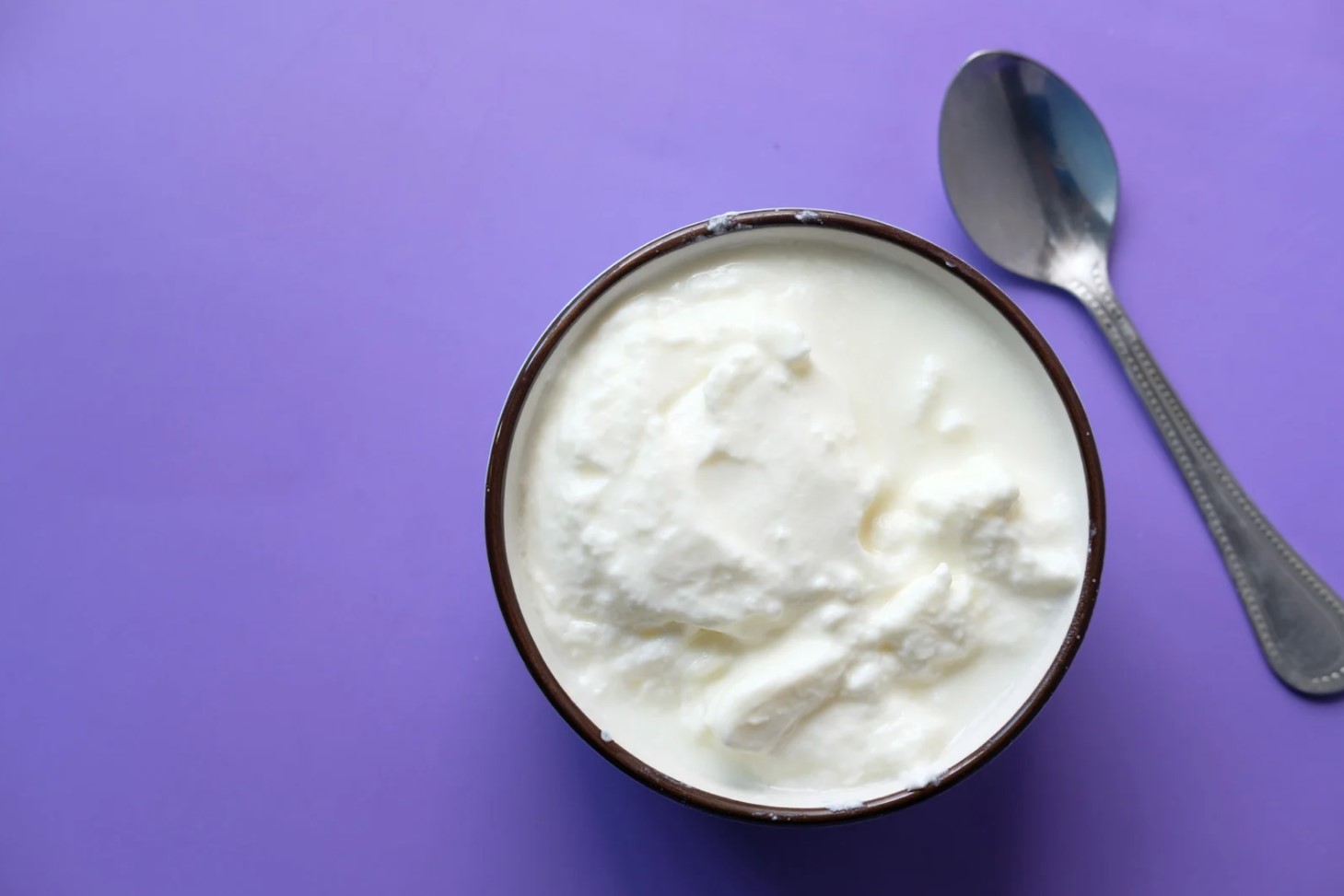Boosting Gut Health With Yogurt
Yogurt is a delicious and nutritious food that can help you achieve optimal gut health. Digestive health is crucial for overall health since the gut plays a central role in the body’s immune system. If you’re curious about how to start incorporating yogurt into your diet or want to learn more about its benefits, keep reading.
The Benefits of Yogurt for Gut Health
Yogurt is packed with beneficial bacteria known as probiotics. These good bacteria help to promote a healthy balance of gut bacteria, which are essential for overall health. Consuming a regular serving of yogurt can help to reduce inflammation, improve digestion, and boost your body’s natural defenses. Other than probiotics, yogurt also contains calcium, vitamin D, and protein that may benefit gut health as well.
- Enhances digestion: Yogurt is an excellent source of friendly bacteria that can be introduced into your gut to keep your digestive system healthy.
- Reduces the risk of infection: Probiotics may help to reduce the risk of contracting infections by improving natural immunity.
- Reduces inflammation: Consuming probiotics can help to reduce inflammation in the gut, which can lead to a range of health issues.
- Relieves constipation: Yogurt is known to help in alleviating constipation issues, thereby improving bowel movements.
How to Incorporate Yogurt into Your Diet
Yogurt can be consumed in many ways, such as a snack or a side dish. The simplest way to incorporate yogurt into your diet is to eat it as a snack. You can also use yogurt as a topping for fruit and granola, or even as a substitute for sour cream in recipes. Whichever way you choose, ensure to read the nutrition labels and pick yogurts with low sugar content and natural flavors.
| Yogurt Types | Description |
|---|---|
| Regular | Plain, non-fat, and low-fat varieties are available, and fruit-flavored varieties with sugar are common as well. |
| Icelandic Yogurt | This yogurt is thicker than regular yogurt and has a higher protein content, making it a great choice for people trying to build muscle. |
| Greek Yogurt | This thick and creamy yogurt is higher in protein than regular yogurt and can be a great way to get some extra protein into your diet. |
Regardless of the type of yogurt you choose, probiotics will be present, and you can expect nothing but improved gut health with regular consumption.

Strengthening Bones And Teeth
Yogurt is a delicious and nutritious food that has numerous health benefits. It is packed with protein, calcium, and other essential vitamins and minerals that are essential for the body. Consuming yogurt can help strengthen your bones and teeth, among other things.
Calcium is a key nutrient that is essential for bone health. It not only helps to build and maintain strong bones but also plays a vital role in teeth health. Yogurt is an excellent source of calcium, which can improve the density and strength of your bones, reduce the risk of fractures and osteoporosis, and prevent dental decay and gum disease.
- One cup of plain yogurt contains approximately 30% of the daily recommended intake of calcium.
- Yogurt also contains probiotics, which can enhance calcium absorption and digestion.
In addition to calcium, yogurt is also rich in vitamin D, which is essential for bone health. Vitamin D works in conjunction with calcium to help strengthen and maintain bones and teeth. Yogurt is also an excellent source of phosphorus, which is another essential mineral essential for strong bones.
| Nutrient | Quantity per 100g of Yogurt |
|---|---|
| Calcium | 121 mg |
| Vitamin D | 19 IU |
| Phosphorus | 94 mg |
In conclusion, consuming yogurt regularly can be incredibly beneficial for your bone and teeth health. It’s easy to incorporate into your diet, and there are numerous delicious ways to enjoy it, such as adding it to smoothies or eating it with fruit and granola. Make sure to choose plain yogurt without added sugars or artificial flavors to reap the most benefits.
Enhancing Immune System Function
Yogurt is known to be a probiotic powerhouse that can provide numerous health benefits. One of the most notable advantages is how it can help enhance your immune system function. Immune system function is essential in keeping our bodies healthy and strong, especially because it keeps us protected against disease and infection.
Yogurt contains live and active cultures, which are good bacteria that can help populate your gut with healthy microbes. These healthy microbes are critical in improving your immune system function because they can help stimulate the production of antibodies, which are needed to fight off infection and disease.
- Yogurt is a good source of Vitamin D, which is essential in boosting the immune system function. It is necessary for calcium absorption and for maintaining strong bones and teeth. Vitamin D is also important for regulating the immune system’s response to infections and diseases.
- Research also suggests that yogurt can help reduce the severity and duration of respiratory tract infections and the common cold, primarily because of its probiotic content.
- Yogurt is also rich in zinc, a mineral that is essential for immune function. It helps produce and activate T-cells, which are an integral part of our immune system.
| Benefits of Yogurt in Enhancing Immune System Function | |
|---|---|
| Probiotics | Helps populate gut with healthy microbes that stimulate antibody production. |
| Vitamin D | Boosts immune system function, particularly in regulating the immune system’s response to infections and diseases. |
| Zinc | Essential in immune function as it helps produce and activate T-cells, which defend our body against infection and disease. |
It is important to note that not all yogurt products contain the same levels of probiotics or other nutrients. When choosing yogurt, always look for products that are low in added sugar and are labeled as having live and active cultures to ensure that you get the best benefits for your immune system function. Enhancing immune system function with yogurt is an excellent way to boost your overall health and wellbeing.

Improving Digestion With Probiotics
Are you experiencing digestive problems? Are you searching for a natural remedy to improve your digestion? Look no further than yogurt! Yogurt is a source of probiotics, which are beneficial bacteria that can improve digestive function. Probiotics are live microorganisms that can confer health benefits when consumed in adequate amounts. You can find probiotics in various types of yogurt, such as Greek yogurt, kefir, and probiotic yogurt.
Research suggests that probiotics may help relieve symptoms of various digestive disorders, including diarrhea, constipation, irritable bowel syndrome (IBS), and inflammatory bowel disease (IBD). Probiotics can also prevent the growth of harmful bacteria in your gut, which can cause infections and interfere with your digestion. Furthermore, probiotics can enhance the absorption of nutrients from your food by improving the health of the intestinal lining and reducing inflammation.
- Tip: When buying yogurt, look for a brand that contains live and active cultures of probiotics. The more strains of probiotics and the higher the number of organisms per serving, the better. Avoid yogurts that contain added sugars, artificial flavors or colors, and thickeners.
Besides yogurt, you can also obtain probiotics from other foods and supplements, such as fermented vegetables, kimchi, sauerkraut, miso, tempeh, and probiotic capsules. However, yogurt is one of the most convenient and versatile sources of probiotics, as it can be eaten plain or used in many recipes, such as smoothies, dips, dressings, and baked goods.
| Yogurt Brands | Probiotic Strains | Number of CFUs (colony-forming units) per serving |
|---|---|---|
| Chobani Greek Yogurt | Lactobacillus acidophilus, Bifidobacterium lactis, Lactobacillus casei, Lactobacillus rhamnosus, Lactobacillus bulgaricus, Streptococcus thermophilus | more than 1 billion |
| Stonyfield Organic Yogurt | Lactobacillus acidophilus, Bifidobacterium lactis, Lactobacillus bulgaricus, Lactobacillus casei, Lactobacillus rhamnosus, Streptococcus thermophilus | between 1 and 6 billion |
| Yoplait Original Yogurt | Lactobacillus bulgaricus, Streptococcus thermophilus, Lactobacillus acidophilus, Bifidobacterium lactis | more than 100 million |
To enjoy the digestive benefits of yogurt, try incorporating it into your diet on a regular basis. You can have it as a snack, a dessert, or a meal accompaniment. You can also combine it with other gut-healthy foods, such as fiber-rich fruits and vegetables, prebiotics (which are types of fiber that nourish the probiotics), and low-fat proteins.

Reducing The Risk Of Chronic Diseases
Chronic diseases have become a pressing concern in modern society, affecting millions of people worldwide. Diabetes, heart disease, cancer, and stroke are all examples of chronic diseases that significantly impact health and quality of life. Fortunately, research shows that certain dietary habits, such as consuming yogurt, can help reduce the risk of chronic diseases.
Yogurt is a fermented dairy product that contains beneficial bacteria known as probiotics. These probiotics play a critical role in maintaining a healthy digestive system and regulating the immune system. Additionally, yogurt is rich in essential nutrients such as calcium, vitamin D, and protein, which supports bone health and helps lower blood pressure levels.
- Regular yogurt consumption has been associated with a decreased risk of developing type 2 diabetes.
- Studies suggest that consuming yogurt may also help reduce the risk of heart disease and stroke.
- Evidence shows that probiotics found in yogurt may be beneficial for preventing colon cancer.
Incorporating yogurt into your diet is an excellent way to reduce the risk of chronic diseases. It’s a convenient and tasty snack that can be enjoyed on its own, with fruits or nuts, or used as a substitute for sour cream or mayonnaise. Choose plain, unsweetened yogurt without additives for maximum health benefits. Give yourself a fighting chance against chronic diseases by making yogurt a part of your daily diet.
Lowering Blood Pressure Levels
High blood pressure is a common health concern that affects millions of people worldwide. If left untreated, it can lead to serious health complications such as heart disease, stroke, and kidney failure. However, there are several lifestyle changes you can make to help lower your blood pressure levels. One of the most effective ways to do this is by eating a diet that is rich in yogurt and other dairy products.
Yogurt is a fantastic source of calcium, potassium, and magnesium, all of which are essential minerals that help regulate blood pressure. Studies have shown that consuming just one serving of yogurt per day can significantly lower blood pressure levels in individuals with hypertension. Additionally, yogurt contains probiotics, which are beneficial bacteria that help to reduce inflammation in the body and improve gut health, both of which are important factors in controlling high blood pressure.
- If you’re looking to incorporate more yogurt into your diet, it’s easy to do so. You can enjoy it plain, as a topping or ingredient in dishes such as smoothies and fruit parfaits, or as a substitute for sour cream or mayonnaise in recipes.
- In addition to consuming yogurt, it’s important to maintain a healthy weight, limit sodium intake, and engage in regular physical activity to help lower blood pressure levels.
| Food | Sodium Content |
|---|---|
| Bread | 80mg per slice |
| Canned soup | 800mg per cup |
| Frozen dinners | 500-1500mg per serving |
| Processed meats | 500-1000mg per serving |
In conclusion, incorporating more yogurt into your diet is a great way to help lower blood pressure levels and improve overall health. It’s important to also pay attention to sodium intake and maintain a healthy lifestyle to maximize the benefits of this superfood. So why not add a serving of yogurt to your next meal and reap the health benefits!

Promoting Weight Loss And Proper Weight Management
Promoting Weight Loss And Proper Weight Management with Yogurt
Yogurt is a delicious and nutritious food that can be enjoyed in many ways. It is rich in calcium, a mineral that helps build strong bones and teeth. But aside from its calcium content, yogurt also offers numerous health benefits, especially for those who want to lose or manage their weight. Studies have shown that regular consumption of yogurt can help promote weight loss and improve body composition.
One reason why yogurt is beneficial for weight loss is its protein content. Protein is known to increase feelings of fullness and reduce hunger, which can lead to lower calorie intake. Yogurt is also rich in probiotics, or beneficial bacteria, which can help improve digestion and reduce inflammation in the gut. This can lead to better absorption of nutrients and a healthier gut microbiome, which can also affect weight management.
- Choose Greek yogurt over regular yogurt as it has a higher protein content.
- Look for plain yogurt and avoid flavored yogurts that can be high in added sugars.
- Add fresh fruits or nuts as toppings to increase the nutrient content and fiber of your yogurt.
| Types of Yogurt | Protein Content per 100g |
|---|---|
| Regular Yogurt | 4g |
| Greek Yogurt | 10g |
| Skyr | 11g |
Incorporating yogurt into your diet can be an easy and convenient way to promote weight loss and proper weight management. It can be eaten as a snack or used as a substitute for higher calorie and less nutritious foods. Just remember to choose plain and low-fat or fat-free varieties, and to check the label for added sugars. With its numerous health benefits, yogurt can be a part of a healthy and balanced diet for a healthier you.

Relieving Inflammation And Reducing Allergy Symptoms
Did you know that yogurt can help relieve inflammation and reduce allergy symptoms? This delicious and nutritious food is packed with beneficial bacteria called probiotics, which have been shown to improve gut health and boost immunity. Inflammation is a natural response to injury or infection, but chronic inflammation can lead to a host of health problems, including allergies, asthma, heart disease, and cancer. By consuming probiotics regularly, you can help reduce inflammation in your body, which may help alleviate symptoms of allergies or other inflammatory conditions.
- One study found that consuming yogurt containing Lactobacillus acidophilus reduced levels of inflammation markers in the blood of participants with colitis, an inflammatory bowel disease.
- Another study found that a daily probiotic supplement reduced symptoms of hay fever, including runny nose, congestion, and eye irritation.
- Multiple studies have shown that probiotics can improve skin health and reduce symptoms of eczema, a common allergic skin condition.
In addition to probiotics, yogurt is also a rich source of several important nutrients, including protein, calcium, and vitamin D. These nutrients are essential for maintaining strong bones and teeth, which can help prevent inflammation and other health problems. Yogurt is also a convenient and portable snack, making it a great choice for busy people who need a quick and healthy energy boost.
| Nutrient | Amount per 8oz serving |
|---|---|
| Protein | 11g |
| Calcium | 415mg |
| Vitamin D | 20% of daily value |
So if you’re looking for a tasty and effective way to relieve inflammation and reduce allergy symptoms, why not add some yogurt to your diet? With so many delicious flavors and styles to choose from, you’re sure to find one that fits your taste preferences and nutritional needs.
Fighting Bad Breath And Promoting Oral Health
Do you often suffer from bad breath? Are you looking for ways to maintain oral hygiene and promote healthier teeth and gums? Look no further than yogurt! Not only is it a delicious and nutritious snack, but it also has amazing benefits for dental health.
Yogurt contains probiotics, which are live microorganisms that help restore the natural balance of bacteria in your mouth. This means that they can help fight off the harmful bacteria that cause bad breath and gum disease. Probiotics also aid in the production of saliva, which helps to neutralize the acids in your mouth and prevent tooth decay.
- Incorporate yogurt into your daily diet to promote oral health and fight bad breath.
- Choose plain, unsweetened varieties to avoid added sugars that can contribute to dental issues.
- Consider using yogurt as a natural alternative to mouthwash. Swish a small amount around in your mouth and spit it out for fresh, clean breath.
In addition to probiotics, yogurt is also rich in calcium and vitamin D, both of which are essential for strengthening teeth and bones. Studies have shown that consuming yogurt can also reduce the risk of periodontal disease, a serious bacterial infection that affects the gums and bones surrounding the teeth.
| Benefits of Yogurt for Dental Health |
|---|
| Restores natural balance of bacteria in mouth |
| Aids in production of saliva to neutralize acids in mouth |
| Rich in calcium and vitamin D for stronger teeth and bones |
| Reduces risk of periodontal disease |
So, next time you’re reaching for a snack, grab a cup of yogurt and enjoy the benefits for your oral health. Your teeth and gums will thank you!
Finding A Convenient Source Of Nutrient-Rich Food
In today’s world, where people are constantly on the go, finding nutrient-rich foods that are also convenient can be a challenge. Fortunately, one food that fits both categories is yogurt. Whether you need a quick snack in between meals or a healthy option for breakfast, yogurt is a great choice. With its high protein content, yogurt helps keep you feeling full for longer periods of time, making it an ideal snack to help you get through the day.
Not only is yogurt convenient, it’s also incredibly versatile. You can use it as a base for smoothies, mix it with your favorite fruits and granola for a delicious parfait, or simply eat it on its own. And with so many flavors to choose from, you’re sure to find one that you love.
- Vanilla
- Strawberry
- Peach
In addition to being a convenient source of nutrition, yogurt also provides a number of health benefits. For example, it may help reduce the risk of osteoporosis by promoting bone health. The calcium and vitamin D found in yogurt can also help strengthen teeth and prevent cavities.
| Bone Health Benefits | Oral Health Benefits |
|---|---|
| Reduces risk of osteoporosis | Strengthens teeth |
| Promotes bone health | Prevents cavities |
With so many benefits, it’s no wonder why so many people turn to yogurt as a convenient source of nutrition. Whether you’re looking for a healthy snack or a way to boost your overall health, yogurt is a great option.
Aiding İn Post-Workout Recovery
Gaining muscles and staying fit requires more than just regular workout sessions; it also involves proper nutrition and post-workout recovery. However, replenishing the body with the right nutrients after a workout can be a challenge. Yogurt is a perfect post-workout food since it contains an adequate amount of protein, calcium, and essential nutrients to aid in muscle recovery while providing the body with other health benefits.
Including yogurt in your daily diet is an effective way to enhance post-workout recovery. Yogurt is an excellent source of protein, and most brands contain high levels of the amino acid leucine. Leucine is a crucial amino acid that helps to stimulate muscle protein synthesis, supporting muscle growth and recovery after exercise. Yogurt also contains an abundance of calcium, which is essential for bone health. Consuming yogurt after a workout will replenish the body’s calcium and help improve bone density.
Yogurt is also a rich source of other essential nutrients, including Vitamin D and potassium. Vitamin D helps to maintain strong bones and support overall immune health, while potassium aids in regulating fluid balance in the body. Including yogurt in post-workout meals is an easy way to replace the vitamins and minerals lost during exercise. Moreover, yogurt is easy to incorporate into your diet; you can make a protein-rich smoothie or add it to your salad or fruit for a post-workout snack.
| Benefits of including yogurt in post-workout nutrition plan: |
|---|
| Rich source of protein |
| Contains amino acid leucine that aids in muscle protein synthesis |
| High in bone-strengthening calcium |
| Rich source of Vitamin D, which aids in overall immune health |
| Contains potassium which helps to regulate fluid balance in the body |
In conclusion, including yogurt in post-workout meals is an excellent way to promote faster muscle recovery while providing the body with the right amount of nutrients. Yogurt is a convenient and tasty source of essential nutrients, vitamins, and minerals that can help improve overall health and wellness. So, next time, after your workout, and you need to replenish your body with the right nutrients, grab a cup of yogurt, and let it aid in your post-workout recovery.
Helping With Lactose Intolerance And Milk Allergies
If you are lactose intolerant or allergic to milk, it can be difficult to find foods that meet your nutritional needs. Thankfully, yogurt can be an excellent source of essential nutrients even if you avoid other dairy products. Yogurt is made by fermenting milk with friendly bacteria known as probiotics. During the fermentation process, these bacteria break down lactose, the sugar found in milk, making it easier for those with lactose intolerance to digest. In addition to being a rich source of protein, yogurt is also packed with vitamins and minerals.
One way to enjoy the benefits of yogurt is to use it as a substitute for milk in recipes. If you are making pancakes, for example, try replacing the milk with plain yogurt. This can add a tangy flavor to the pancakes while also making them more nutritious. Additionally, you can use yogurt as a base for smoothies, parfaits or dips, or even mix it with fruit for a delicious snack. Be sure to read labels carefully when buying yogurt, as some varieties may contain added sugars or artificial ingredients.
- When selecting a yogurt brand, always look for plain or Greek yogurt as they contain fewer added sugars and preservatives.
- Many people find that their symptoms improve when they switch to organic or grass-fed yogurt, as these options contain fewer hormones and antibiotics which can contribute to digestive issues.
- If you are allergic to milk protein, be sure to choose a yogurt brand that is labeled as “dairy-free” and made from a non-dairy milk like soy or almond milk.
When consumed in moderation, yogurt can be a valuable addition to anyone’s diet, especially for those with lactose intolerance or milk allergies. Probiotics found in yogurt may support gut health by balancing the levels of friendly bacteria in your digestive system. With so many delicious and nutritious ways of enjoying this versatile ingredient, there’s never been a better time to give yogurt a try!
Reducing Exercise-Induced Muscle Damage
Exercise is an important part of a healthy lifestyle, but it can also cause muscle damage, stiffness, and soreness. This is especially true for people who engage in regular strenuous exercise, such as weightlifting or long-distance running. However, yogurt can be an effective way to help reduce exercise-induced muscle damage and speed up recovery.
Yogurt is rich in protein, which is essential for repairing and building muscles. Additionally, yogurt contains probiotics that can help reduce inflammation and promote healing throughout the body. When consumed regularly after exercise, yogurt can help reduce muscle stiffness and soreness, allowing athletes and fitness enthusiasts to recover more quickly and get back to their routine.
- Incorporating yogurt into your post-workout routine can be simple and easy. Here are a few tips to get started:
- Choose plain yogurt without added sugars or flavorings. These can add unnecessary calories and undo the benefits of the protein and probiotics.
- Add fresh fruit or honey to the yogurt for a natural source of sweetness.
- Consider adding a scoop of protein powder or chia seeds for extra protein and nutrients.
| Yogurt Parfait Recipe |
|---|
| Ingredients: |
| 1 cup plain yogurt |
| 1/2 cup fresh berries |
| 1 tbsp honey |
| 1 tbsp chia seeds |
| Directions: |
| 1. In a small bowl, mix together the yogurt, honey, and chia seeds. |
| 2. Layer the yogurt mixture and fresh berries in a glass or bowl. |
| 3. Enjoy immediately, or cover and refrigerate for later. |
Overall, incorporating yogurt into your post-workout routine can be a simple and effective way to reduce muscle damage and promote faster recovery times. With its rich protein content and probiotics, yogurt is a natural and convenient choice for athletes and fitness enthusiasts of all levels.
Supporting Brain Function And Mood Regulation
Yogurt is a delicious, creamy treat that has been enjoyed by people all over the world for centuries. But, did you know that yogurt can also support brain function and mood regulation? Yes, it’s true! Research has shown that regularly consuming yogurt can have a positive impact on our mental health and well-being.
One of the ways in which yogurt supports our brain is through its high content of important nutrients such as calcium, magnesium, and vitamin B12. These nutrients are essential for keeping our brain cells healthy and functioning properly. Studies have also shown that probiotics, which are found in many types of yogurt, can help reduce inflammation in the brain and promote overall brain health.
In addition to its brain-boosting benefits, yogurt can also help regulate our mood. The live cultures found in yogurt can help support a healthy gut microbiome, which in turn can have a positive effect on our mood and emotional state. A balanced gut microbiome is crucial for producing neurotransmitters such as serotonin, which is often referred to as the “happy hormone” because of its mood-boosting effects.
- Yogurt is a convenient and delicious way to support our brain health and promote a positive mood.
- Regularly consuming yogurt can help provide important nutrients that are essential for keeping our brain cells healthy and functioning properly.
- The probiotics found in yogurt can help reduce inflammation in the brain and promote overall brain health.
- Yogurt can also help regulate our mood by supporting a healthy gut microbiome and promoting the production of important neurotransmitters such as serotonin.
Overall, adding yogurt to our diet is a simple yet effective way to support our brain function and promote a positive mood. So the next time you’re looking for a healthy snack, consider reaching for a delicious cup of yogurt!
Encouraging Healthier Pregnancy Outcomes.
One of the most exciting journeys in life is being pregnant. However, it can be overwhelming and confusing, especially when it comes to making healthy choices for yourself and your growing baby. Luckily, there is one food that can contribute to healthier pregnancy outcomes: yogurt.
Yogurt is an excellent source of essential nutrients such as calcium, protein, and vitamins B and D. These nutrients are crucial for the development of the baby’s bones, muscles, and tissues. In addition, yogurt contains probiotics, which are beneficial bacteria that promote a healthy digestive system. During pregnancy, hormones can slow down the digestive process, causing constipation and bloating. Probiotics can help alleviate these symptoms and keep the gut healthy.
- Calcium in yogurt is essential for teeth development.
- Probiotics can help alleviate constipation and bloating.
Moreover, consuming yogurt during pregnancy may reduce the risk of gestational diabetes and pre-eclampsia. Gestational diabetes is a type of diabetes that develops during pregnancy and can cause complications for both the mother and the baby. Pre-eclampsia, on the other hand, is a condition characterized by high blood pressure and damage to organs that can threaten the life of both the mother and the baby. By adding yogurt to your diet, you can reduce the risk of both conditions and ensure a healthier pregnancy outcome.
| Nutrient | Amount in 1 cup of plain low-fat yogurt |
|---|---|
| Calcium | 488 mg |
| Protein | 12 g |
| Vitamin B12 | 1.6 mcg |
| Vitamin D | 115 IU |
It is important to note that not all yogurts are created equal. Some contain added sugars and artificial sweeteners, which can be harmful to you and your baby. To reap the benefits of yogurt, choose plain, unsweetened varieties and flavor them with fresh fruit or honey. Additionally, make sure to consult with your healthcare provider before making any significant changes to your diet.
In conclusion, incorporating yogurt into your daily diet can have numerous benefits for both you and your baby’s health during pregnancy. Its high calcium and protein content, along with its probiotics, can contribute to healthier pregnancy outcomes, reducing the risk of complications such as gestational diabetes and pre-eclampsia. Remember, always opt for plain varieties and consult with your doctor before making any dietary changes during pregnancy.